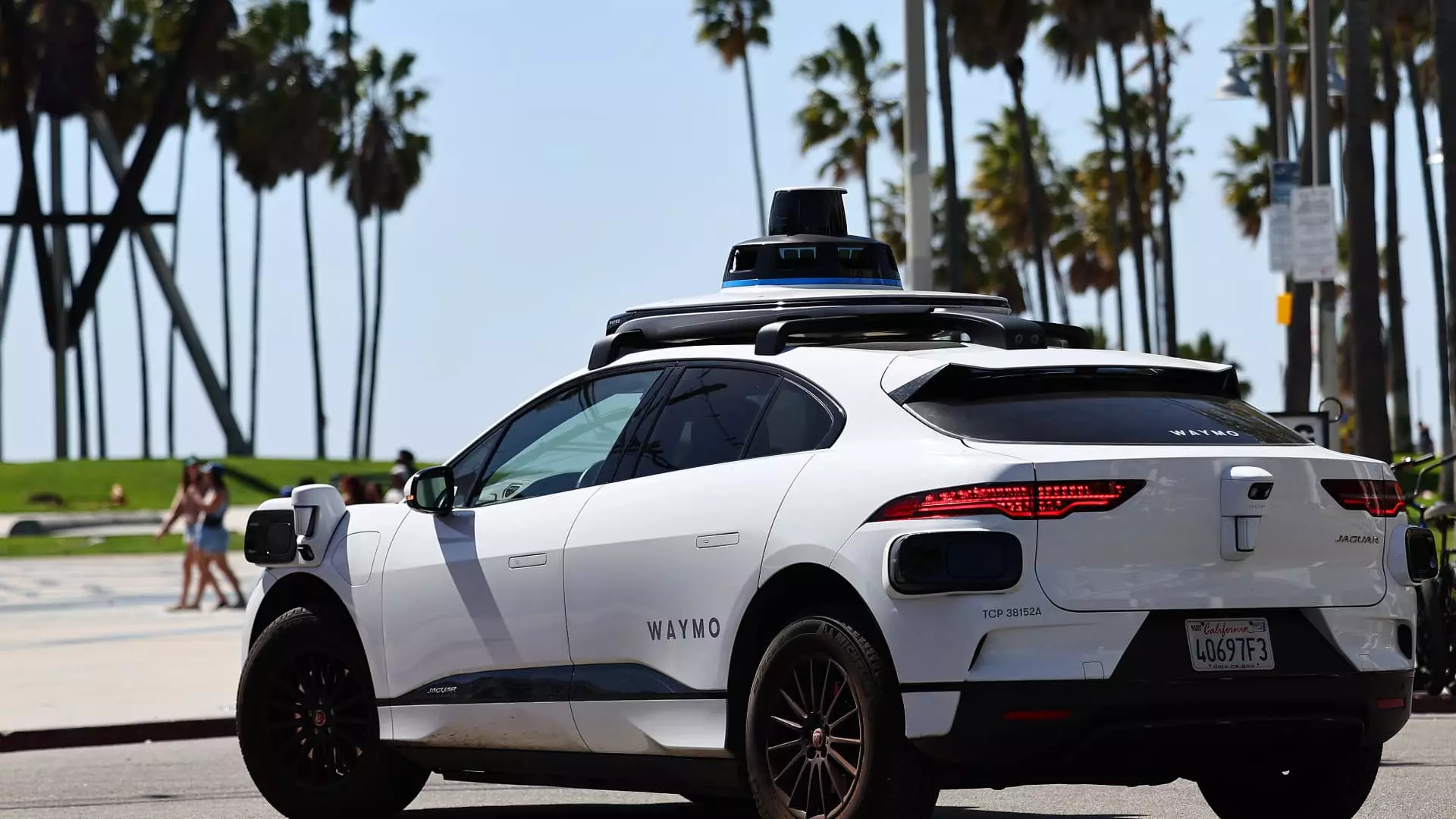Waymo, the autonomous driving division of Alphabet, has recently crossed a significant milestone by securing $5.6 billion in its Series C funding round. This infusion of capital is set to catalyze the expansion of its robotaxi services beyond its current operational hubs of Los Angeles, San Francisco, and Phoenix. With this funding, Waymo plans to enhance its existing operations and broaden its service area to include cities like Austin and Atlanta, facilitated through a partnership with Uber. Thus far, Waymo has raised a staggering total of over $11 billion, marking a significant achievement in the competitive field of autonomous vehicles.
Alphabet, Waymo’s parent company, played a crucial role in this funding round, leading the investment while other big names such as Andreessen Horowitz, Fidelity, and Tiger Global joined in. The combination of support from affluent investors underscores the growing confidence in Waymo’s technology and its potential to reshape urban mobility.
While the geometric growth of autonomous vehicles is promising, it is essential to address the real-world applications of this technology. Waymo’s service has been particularly beneficial for women who have expressed safety concerns about sharing rides with human drivers. The option to summon a robotaxi through the Waymo One app not only provides convenience but also alleviates safety concerns for vulnerable demographics, including parents keen on ensuring their teenagers reach school safely when other transit options fall short.
The data speaks volumes; Waymo already conducts over 100,000 weekly trips across its operational regions, a challenge that exhibits both technological capability and consumer trust. Such statistics reveal that, despite skepticism surrounding the safety of autonomous vehicles, there exists a growing acceptance of their utility and reliability among the public.
Waymo holds a notable competitive advantage in the autonomous taxi space, primarily due to its established commercial operations while others remain in testing phases. Competing companies like GM-owned Cruise have faced setbacks; Cruise’s recent operational pause due to safety incidents highlights the challenges that autonomous vehicle technologies must navigate to gain public trust.
The competition is fierce, with industry titans like Tesla promising advancements in self-driving technology. Tesla’s plans for a driverless ride-hailing service illustrate the race to dominate this sector. However, Waymo’s proactive approach to safety and its focus on deploying its vehicles in varying conditions, including winter weather, underlines its commitment to sustainable growth and public safety.
Despite Waymo’s achievements, public skepticism remains—a factor that is critical to the widespread adoption of autonomous vehicles. A Pew Research Center survey notes that nearly two-thirds of U.S. respondents are reluctant to ride in a driverless vehicle. This resistance underscores a vital consideration for all autonomous vehicle companies: the need to not only improve technology but also win over public confidence.
Waymo claims their self-reported data suggests that their vehicles experience fewer crashes than traditional human-operated vehicles. However, incidents are still bound to occur; some reports indicate that Waymo’s AVs have blocked traffic or traveled in the wrong direction. These complications reveal a stark truth: the path to mainstream acceptance is fraught with challenges.
Innovations and Partnerships: The Road Ahead
Waymo is not resting on its laurels; it is ambitiously investing in its next-generation robotaxis that utilize advanced technology from Geely Zeekr, coupled with its custom sensors and AI “Driver.” This innovation is a testament to their commitment to enhancing user experience and safety. Furthermore, the strategic collaboration with Hyundai to incorporate the Ioniq 5 electric vehicle into its fleet signals Waymo’s intent to establish a more diverse and resilient operational model.
Looking ahead, Waymo has plans to explore robotaxi services in less predictable environments, venturing into northern California, upstate New York, and Michigan. This expansion not only diversifies its geographical presence but also presents an opportunity to refine its self-driving technology under diverse conditions.
Waymo stands at the forefront of the autonomous vehicle revolution, buoyed by substantial financial backing and innovative technology. As the company prepares to expand its services and tackle public skepticism, its dedication to safety and user convenience could define its path in this exciting new frontier of transportation. The intersection of technology and daily life is poised for transformation, and Waymo remains committed to steering the future of mobility.


Leave a Reply